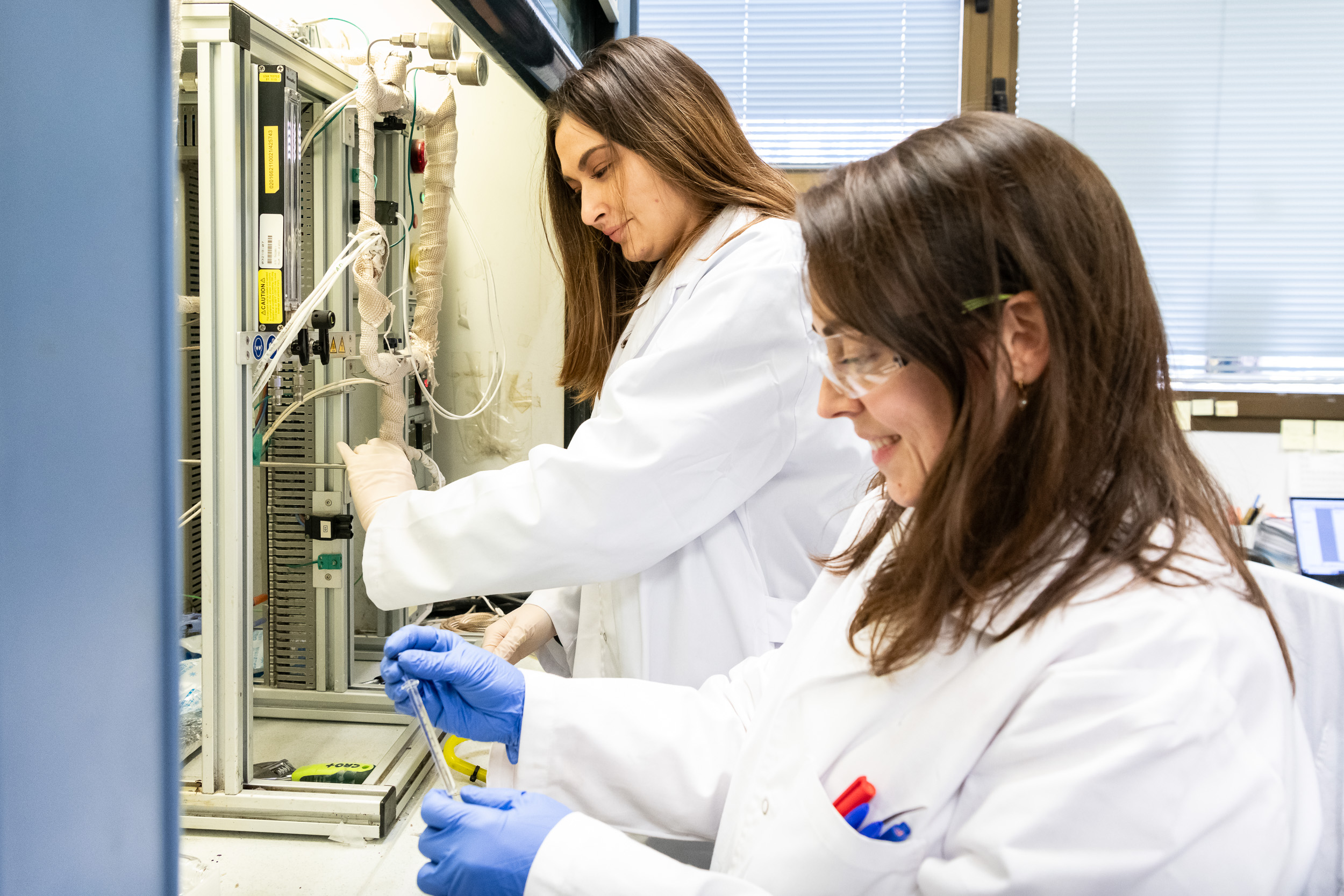ALBA Synchrotron

The Instituto de Tecnología Química (CSIC-UPV) leads a work that describes a new method for the industrial purification of ethylene, one of the largest chemical processes in the world and the basis for a multitude of chemical products in our daily lives. Experiments carried out at NOTOS beamline of ALBA contribute to the results.
Ethylene is the first organic compound produced worldwide - nearly 100 million tons per year -, and is the basis for a multitude of chemical products used in our daily lives such as polyethylene. Bags, toys or kitchen wrapping film are made of polyethylene. To obtain it, is necessary to purify ethylene using a catalyst.
A research group led by the Instituto de Tecnología Química (CSIC-UPV), has patented a new catalyst to purify ethylene that allows better control the temperature range of the reaction and stops any secondary reaction, allowing the industrial process to be carried out in a safer and more efficient way. The work is published in the journal Nature Catalysis.
Ethylene purification requires a catalyst, a substance that favors the process. "Currently, the catalyst to purify ethylene consists of a complicated mixture of precious metals such as palladium, which results in a poorly defined material", explains Antonio Leyva Pérez, scientist at the ITQ who leads the study.
In this project, researchers have developed a well-defined palladium catalyst, inserted in a solid metal-organic framework (MOF). The new catalyst carries out the entire purification process on a single palladium atom linked to another single gold atom, which modifies the activity of the palladium to make it more efficient and selective and thus be able to work in a temperature range of almost 100ºC, instead of the 50ºC range for current catalysts. Furthermore, due to the small pore size of the MOF, unwanted acetylene polymerization processes are controlled.
To unveil the oxidation states of palladium and gold in the MOF, researchers use the NOTOS beamline of ALBA. In particular, X-ray adsorption spectroscopy techniques were carried out and synchrotron light enable to obtain key data for their studies.
These results may have a great industrial impact, since ethylene purification is the second largest reaction worldwide in organic chemistry: bags of all types, containers, pipes... are made of polyethylene, which accounts for about 15% of the almost 400 million tons of plastics produced in 2021.
According to Leyva, "the new catalyst could be used in industrial plants for the purification of ethylene once the scale-up of the synthesis of the material is developed". If this material is too expensive on a kilogram scale (palladium is more expensive than gold), "there are alternatives to prepare the active center of the new catalytic material in other cheaper materials".
The project lead by the ITQ is a collaboration among the Instituto de Ciencia Molecular (ICMOL) from the Universitat de València, the Universidad de Cádiz, the Universitá della Calabria and the ALBA Synchrotron. The new catalyst has been patented by its inventors through a patent that describes the synthesis of the new MOF material and its excellent catalytic activity in the hydrogenation reaction of acetylene in ethylene streams. The co-ownership of this patent corresponds to the CSIC, the UPV and the UV, in an example of collaboration between different research institutions.